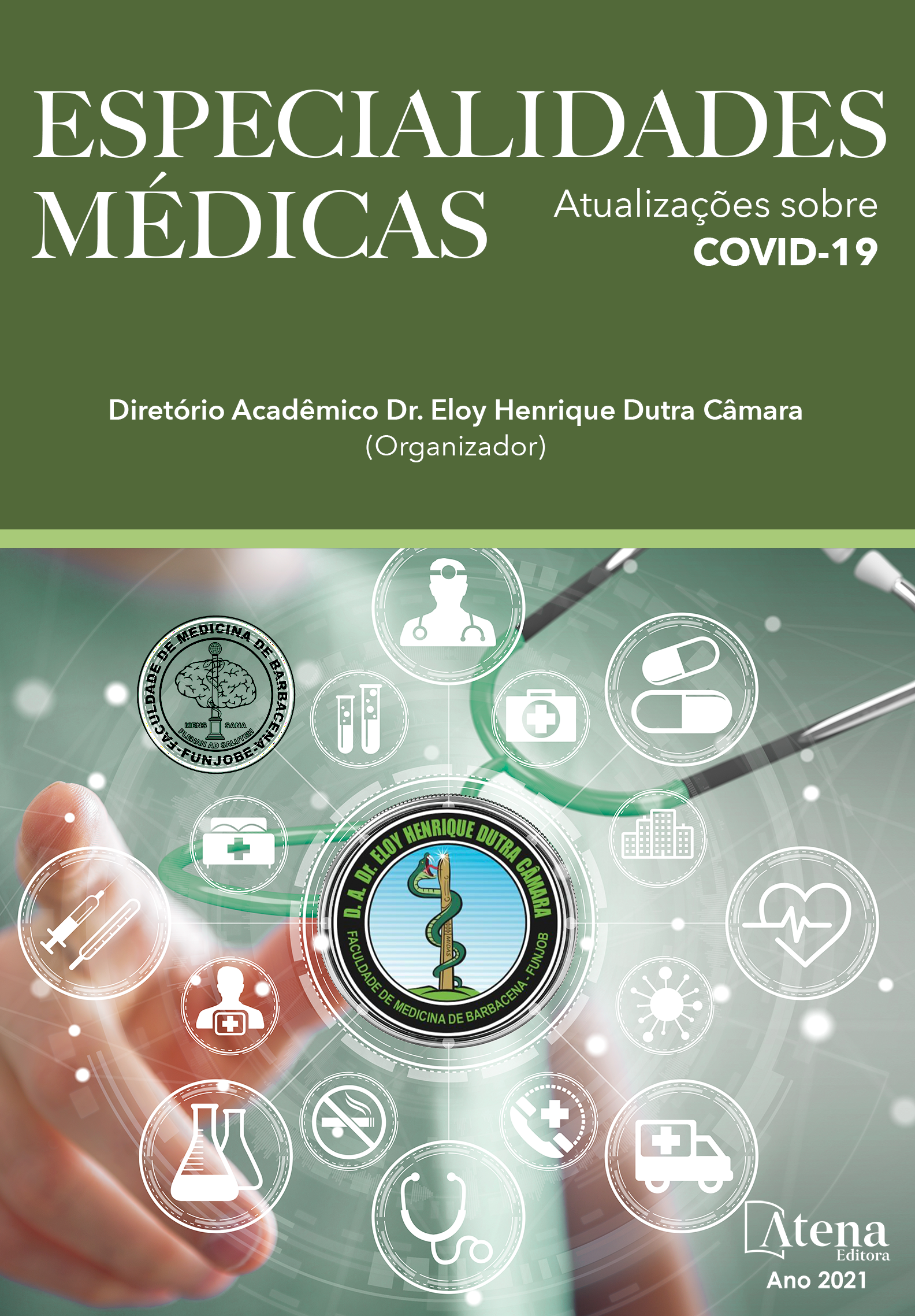
SÍNDROME NEUROLÓGICA PÓS COVID
INTRODUÇÃO: COVID-19 é uma doença causada pelo coronavírus, SARS-CoV-2. Infectou aproximadamente 13 milhões de brasileiros, sendo cerca de 353 mil óbitos notificados ao Ministério da Saúde até abril/2021. O vírus acomete outros órgãos, além do sistema respiratório, como o sistema nervoso. Complicações neurológicas são comuns em pacientes hospitalizados, mais de 80% podem apresentá-las. A Síndrome Neurológica Pós COVID-19 representa um conjunto de manifestações no sistema nervoso central e periférico pós-infecção. OBJETIVO: Descrever achados neurológicos da Síndrome Neurológica Pós COVID-19, que acomete pacientes após se recuperarem da infecção. METODOLOGIA: Revisão de artigos pelas bases de dados PubMed, Scielo e Google Acadêmico, utilizados os descritores “COVID-19”, “Sequelas Neurológicas”, “Síndrome Neurológica pós Covid-19” entre março de 2017 e março de 2021. DISCUSSÃO: O acompanhamento de pacientes anteriormente infectados pelo SARS-CoV-2 mostrou acometimento neuropsicológico associado à depressão, privação do sono e ansiedade. Tais consequências foram observadas em estudo realizado em 2020, em Hong Kong, entre setenta médicos que foram infectados pelo vírus. Pesquisa realizada na Bélgica e na Holanda, envolvendo cento e doze pacientes com COVID-19 hospitalizados e não hospitalizados demonstrou sintomatologia prolongada de mialgia, vertigem, cefaleia, fadiga e anosmia, entre assintomáticos ou sintomáticos leves, evidenciando ser necessário monitorização adequada, por neurologistas, para pacientes com Síndrome Neurológica Pós COVID-19. A patogênese do mecanismo neurológico no período pós-infecção é desconhecida, mas atribui-se a mecanismos de lesão neurológica por disfunção sistêmica pela hipoxemia, do sistema renina-angiotensina e imune. Portanto, nota-se a importância de pesquisar e analisar aspectos e fatores influenciadores neurológicos da COVID-19 para diagnóstico precoce e tratamento adequado, evitando complicações futuras e permanentes, que são preocupações dos neurologistas. CONCLUSÃO: Nota-se a importância de seguimento médico apropriado para pacientes anteriormente infectados, verificando a possibilidade de sintomatologias neurológicas como sequelas no organismo, que devem ser bem caracterizadas para uma abordagem médica adequada à Síndrome Neurológica pós COVID-19.
SÍNDROME NEUROLÓGICA PÓS COVID
-
DOI: 10.22533/at.ed.5942102095
-
Palavras-chave: COVID-19; Síndrome Neurológica Pós COVID-19; Sequelas Neurológicas.
-
Keywords: COVID-19; Neurological Syndrome Post COVID-19; Neurological Sequels;
-
Abstract:
INTRODUCTION: COVID-19 is a disease caused by the coronavirus, SARS-CoV-2. It infected approximately 13 million Brazilians, with approximately 353 thousand deaths reported to the Ministry of Health by April / 2021. The virus affects other organs, in addition to the respiratory system, such as the nervous system. Neurological complications are common in hospitalized patients, which more than 80% can have it. The Post-COVID-19 Neurological Syndrome represents a set of manifestations in the post-infection central and peripheral nervous system. OBJECTIVE: Describe neurological findings of the Post-COVID-19 Neurological Syndrome, which affects patients after recovering from the infection. METHODOLOGY: Review of articles by the PubMed, Scielo and Google Scholar databases, using the descriptors "COVID-19", "Neurological Sequels", "Neurological Syndrome post Covid-19" between March 2017 and March 2021. DISCUSSION: The follow-up of patients previously infected with SARS-CoV-2 showed neuropsychological involvement associated with depression, sleep deprivation and anxiety. Consequences observed in a study conducted in 2020, in Hong Kong, among seventy doctors who were infected by the virus. Research carried out in Belgium and the Netherlands, involving twelve hospitalized and non-hospitalized patients with COVID-19, demonstrating prolonged symptomatology of myalgia, vertigo, headache, fatigue and anosmia, between asymptomatic or symptomatic levels, showing that it is necessary to observe, by neurologists, to patients with Post-COVID-19 Neurological Syndrome. The pathogenesis of the neurological mechanism in the post-infection period is unknown, but it is attributed to mechanisms of neurological damage by systemic dysfunction due to hypoxemia, of the renin-angiotensin and immune system. Therefore, note the importance of examining and analyzing the neurological aspects and influencing factors of COVID-19 for early diagnosis and appropriate treatment, avoiding future and permanent complications, which are concerns of neurologists. CONCLUSION: Thereby it’s very important the appropriate medical follow-up for previously infected patients, checking the possibility of neurological symptoms such as sequels in the body, which must be well characterized for an adequate medical approach to the post-COVID-19 Neurological Syndrome.
-
Número de páginas: 11
- Fernanda Rezende Silva
- Gabriel José Bernini de Paiva Oliveira
- Gustavo Alves Machado
- Matheus Santana Luz
- Natália Jéssica Mendes Araújo
- Tarcísio Araújo de Oliveira
- ANA CLARA AVILA GOMES


